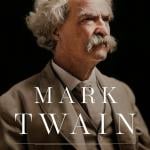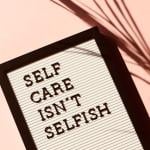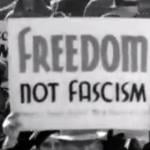Jim Wallis and God Girl: In conversation
God Girl had the chance to talk with Jim Wallis last week as he headed toward Chicago on his book tour for The Great Awakening: Reviving Faith & Politics in a Post-Religious Right America.GG enjoyed their chat so much that she wanted to share it here.
What follows is a transcript of their conversation — about politics, faith and hope — last week.
_______________________________________________________________________
Jim Wallis: I love Chicago. It’s my old stomping ground.
God Girl: Sojourners started here, right?
JW: Yes. We were at Trinity Divinity School in Deerfield and then we moved down to Rogers Park for a short time on Sheridan Road. The first office was a little porch in our apartment. We’d type with gloves on because it was so cold with the wind coming off the lake.
Then we moved to Uptown and the office was right across from the Aragon Ballroom, right next to the el. So when the train would come, when the el came by I had to tell my callers, ‘Wait a minute; I can’t hear you.’ So that was our first real office right there on Lawrence in Uptown.
GG: When was that?
JW: Well, I drove my little car from Michigan State – well, actually from Detroit; I was at Michigan State but then I was at home working for the summer – and I came in the fall of ’70 and we published in the fall of ’71 from Trinity and we were there in Chicago until ’75. We moved to DC in ’75.
So seminary and then moving into Chicago and then on to DC in ’75. But I love Chicago. I miss it in lots of ways.
. . . Just for a little historical memory, the first religion reporter who really seemed to be interested in what we were doing was Roy Larson when he was at the Sun-Times. Roy and I became quite good friends and he would call me every so often and say, ‘Well, what should I be knowing? What should I be writing about? Tell me what’s going on.’ So we became quite good friends. He actually broke several stories that we did in the magazine … he really got it early on. He was one of the first people who really got it. Then he had that great job at Northwestern and Garrett.
Is Roy still around?
GG: Oh, yes. In fact, Roy is my mentor. He taught me everything I know about religion reporting.
JW: He was one of those few people who thought we were interesting before we were famous.
GG: I’ve known who you were for a long time — at least since college if not high school, so I guess I’m one of those, too.
JW: You are one of those.
GG: I’m fascinated with this particular moment in our political history. I’m 37 and I come from a family of political junkies … but I don’t think I’ve ever been more invested personally in a race than I am right now.
JW: Let me guess who you’re invested in!
GG: I’m hope-mongering these days . . . And I think my best guess is that it plays into what you’re writing about, that what we’re seeing right now is not just a social or political phenomenon. It’s a spiritual one. I guess I would start our official conversation by asking what do you think has happened at this intersection of faith and politics between God’s Politics and The Great Awakening?
JW: When reporters ask me what I think has changed since God’s Politics I say, ‘Everything.’ Because it really has. There are two big shifts. One the media has caught onto, the other they’re just beginning to.
The first, Time magazine called ‘the leveling of the praying field.’ Where for the first time … The narrative in 2004 was of course that God was a member of the Republican party and that the Democrats were secular and hostile to religion. And that was full of a lot of caricature even back then. But there was enough truth to it that the story line was very strong. But then there was that flawed exit poll about moral values that made it even worse — as if the war wasn’t a moral issue and the economy wasn’t, but abortion and gay rights were.
But since then the democrats – we happen to have had three frontrunners who were comfortable – very much so – with their own faith. They are Christian lay people. I’ve known Barack for 10 years. And I’ve known Hillary for a long time. And Edwards I’ve known in more recent years. Barack — I’ve been talking theology with Barack for years. And Hillary too. And Liz (Edwards) is on my board. I know all three well. They really showed in that CNN joint forum we did that they are really authentic in their faith. Whether you like them or not politically, you could see that they are people of faith.
I often point out that you don’t have to be religious to run for president, but that these three Democrats just happened to be very committed Christian laypeople, and that really changes the whole conversation. They’re applying their faith to issues other than just abortion and gay marriage. They’re articulate.
Barack is almost a public theologian in the way he links faith and politics. We had him speak at our conference the year before and after he finished I got up and said, ‘That was likely the most important talk on this topic of religion in public life since Kennedy’s in Houston decades ago from a Democrat.’
At the same time, as the media has pointed out, I don’t need to repeat all the stuff, but the Republicans this year have a serious God problem and marriage problem on their side. So that levels the praying field, as Time magazine said.
But if that was the only thing that had changed – Democrats getting more faith friendly . . . They’re clearly reaching out to the faith community. But that wouldn’t have worked if the second shift hadn’t occurred, which is much more about the changing of the agenda.
I preached last night in Park Street Church in Boston. Now, Finney preached there in 1830. Whitefield preached across the street in the Boston Common – 20,000 people And the room was full last night of 600 twenty-something evangelicals. And history, you could feel, was repeating itself.
This is a new generation of new abolitionists, you might say. And they are applying their faith, using their faith, addressing their faith to the challenges we face – the moral scandal of poverty; the degradation of the environment, which they call ‘God’s creation;’ the threat of climate change; human rights; Darfur; pandemic; diseases like HIV/AIDS; and war and peace issues – the exclusive use of war to fight evil and the foreign policy disasters that has led us to. Their agenda is so much wider and deeper.
Do you know the new book UnChristian? [The authors’] concern [is] about this image of Christianity as narrow and partisan and divisive and judgmental and otherworldly and political in the worst sense of the world. They want to re-brand it. They want to change the image to something more open, more welcoming, more defined by compassion and social justice.
So we had an amazing time last night. The crowds have been not only large and diverse, but half under 30 throughout this whole book tour, which was what I was getting before the book tour, too. I tell you, I get so encouraged by that.
The agenda is now wider and deeper than ever before so that when reporters say, ‘Are you saying that evangelicals will look at a candidate’s stance on climate change when they vote?’ I say, ‘Yeah. They will!’
The data’s coming in now. The Barna data from last week about the shift away from the Republican party. And then this week, you might or might not have seen this:
We discovered the exit pollsters were only asking Republicans if they were evangelicals and not Democrats. So a number of us – Joel Hunter and others – we wrote a letter and it was ignored on Super Tuesday. So Faith in Public Life in Washington, D.C., commissioned a poll and did it on Super Tuesday in Missouri and Tennessee. And one of every three Democratic primary voters said they were evangelicals. That’s a lot of people.
So Joel Hunter and I did a press conference – it was a Zogby poll – did a press conference two days ago and I just got a little report from Faith in Public Life. They’ve gotten enormous hits on this – about 25 different news agencies. So the press is slowly getting it. They’ve got this old script still, that evangelicals are all Republicans.
My wife is a Church of England priest. So I’m on the BBC a lot. I love it when these British listeners hear an American Christian voice that doesn’t think God is an American or who is a Republican who just cares about abortion and gay marriage. When they hear that, they’re stunned but they’re excited. I was at Grace Cathedral in San Francisco… I did their service and they said, ‘Wow – who are all these young people?’ All these young people are showing up at church venues that normally don’t have many young people. So that’s pretty exciting.
Young evangelicals, this new generation – and I’m not talking just about twenty-somethings. I mean, every week now, it’s 14 year olds. Wow! I spoke to 45,000 Lutheran teenagers at the Alamo Dome last August — 14-to-18-years-old. It was extraordinary. And then there are a lot of thirty-somethings like you and forty-something and even fifty-somethings like me, who are really forging a new agenda. And those young evangelicals really think that Jesus probably cared more, or would care more, about the 30,000 children who died today because of poverty and disease than he would have about gay marriage amendments in Ohio.
GG: Yeah, I think so. Ya know? Something he actually spoke about. . . . This is tremendously satisfying for me because I am one of those progressive evangelicals and always have been and when I wrote about this in 2000 and in 2004 from my own experience and trying to pay attention to the diversity that there is in the evangelical community – politically speaking, socially speaking – my editors let me do it but I think for a time they thought I was crazy or was just talking about the four people I knew personally.
JW: Yeah you and Wallis and Campolo and Brian McLaren.
GG: Yeah! But it’s really satisfying to be proven right and it’s also terribly exciting spiritually and politically.
JW: They used to say that Jim is a progressive evangelical and that’s a misnomer.
It was a misnomer. Now it’s a movement.
GG: Barack talks a lot about hope. Hope as a theological notion, and the appeal I see broadly is the spiritual appeal even to those who wouldn’t know to describe their experience in those terms … the empathy deficit, etc. … Do you think there are other candidates right now who are understanding the spiritual moment we’re having and are talking to that?
JW: Barack is doing movement politics. He’s using that language of movement politics. I get lots of emails after he gives his talks. The line that I use to end most of my talks in the God’s Politics tour was, ‘We’re the one’s we’ve been waiting for.’ That was my closing line from the epilogue of God’s Politics. Barack used that the other night and so I get all these emails. I’m not endorsing anybody – I want to make that clear. But it’s difficult when he keeps using all my best lines. And we’ve talked about this stuff for a long time. I think he is inspiring a lot of hope and he’s bringing a lot of young people into the process. And no matter what people think of Barack or whether they like Barack or Hillary or even McCain or Huckabee, you’ve got to be excited about bringing a new generation of voters into the process and he’s really doing that.
What I’m saying on the tour is, whoever your favorite candidate is – and a lot of people there like Barack, others like Hillary, too; and perhaps some are for McCain or Huckabee.
Relevant [magazine/media] did a survey of their readers and the highest tallies went to Barack. The second went to Huckabee. Because Hucakbee also is reflective of this wider evangelical agenda because he also talks about the poor and the environment and the arrogance of American foreign policy. … The Washington Times for being a ‘Christian socialist,’ because he spent money on the poor when he was the governor of Arkansas and that offends the economic conservatives in the Republican party. So he’s got a wider agenda than just abortion and gay marriage. He’s very strong on those issues, but he’s only doing what he’s doing because he’s winning the grassroots of the Religious Right, even though until this week their leaders none of them endorsed him. So he’s sort of an upstart, too.
And even McCain has shown … he’s being beat up for it, but he’s shown a remarkable spiritual independence from his own party by standing up so strongly against torture, for example, against the president; on immigration reform, against his party; on campaign finance reform, against his party and against the conservatives. So that kind of maverick or moral independent streak also appeals to people who don’t want to be boxed in to a narrow party mentality.
Its’ really exciting that we’ve broken the notion that God is a Republican or a Democrat. We had a bumper sticker last time that said God isn’t a Repulbican or A democarat. Now people seem to agree.
Richard Land and I were on an NPR interview (recently) and he now says he agrees with that, too.
Richard and I work together on things. We’ve become friends. We went to the White House together on Darfur. … We’re a pretty good tag team representing different constituencies.
Richard cares about immigration reform and children’s health care and so forth, and we talk a lot. … We debated in front of the FRC (the family research council) this fall. In the past, we would often hold press conference or something to counter that meeting in Washington. This time, they invited me to come speak to debate. And the night before, Katie Couric had us on to talk about our different takes. And CBS did some polling to back up their segment … other polls have confirmed this … that poverty, health care, jobs rate higher among evangelicals now than abortion and especially gay marriage. So Richard was really angry about that at the FRC and he began his talk by saying, ‘CBS says we evangelicals care more about poverty than the unborn. Did they talk to you?!” and the crowd roars back, ‘NOOOOO!’ It was a real red beat moment.
And I said, Richard, Richard, Richard, you’re pitting unborn children against poor children. You don’t want to do that. They’re all in the category of the vulnerable and Jesus asked us to defend them. And he said, ‘Oh. Yeah. Right …”
So there’s real shifting of the agenda.
To be honest I’m getting almost no pushback on the issues on the road, about no – there’s not a poverty problem.
GG: Come on. How could you, really?
JW: There’s no, ‘Oh no, there’s no environtmental problem. What are you talking about?’
We’ve got more women and children now who are being trafficked in economic and sexual slavery now than when Wilberforce freed the slaves 200 years ago. That’s galvanizing a lot of young Christians around the country.
GG: Certainly what you have done has helped turn the Titanic here in terms of issues and looking at what the social gospel means, poverty, pandemics and all of what we just talked about. What else do you think contributed to this refocusing?
JW: Everybody gives me more credit than I deserve, I think. They say God’s Politics was a book that changed the conversation, but the conversation was ready to be changed, I think. When you are getting 1,000 or 2,000 people at a book signing you know that something’s happening more than a book.
A lot of people like you are saying, wait a minute! I’m a person of faith. I’m even an evangelical and those people don’t represent me. And I care about moral values, too, but not just two!
At these events it was extraordinary. They would look at each other and look at the size of the crowd and say, Wow I didn’t think there were that many people like me. I thought I was the only one.
That’s what created the excitement and the energy and the buzz around God’s Politics. I think the conversation was ready to be changed because the agenda had gotten so narrow – so unbiblically narrow, I would say – and so partisan. I was in a meeting with Ralph Reed and he said, ‘Well we pulled off a marriage. We married the Republican party.’ And I said, yeah you did and you shouldn’t do that. Nor are we going to marry the Democratic party.
Jon Stewart asked good questions. The other night when I was on his show he said, ‘The last time you were on the show you talked about this conservative bloc of religious people who were trying to win elections for the Republican Party and that you were trying to build an alternative to that: How’s it going? Do you want to create a Religious Left to counter the Religious Right?’
I said, Jon that would be a mistake. The country isn’t hungry for a Religious Left to counter or do the same thing as the Religious Right. They’re hungry for what the book calls, at least in my language, a ‘moral center.’ Not a soulless centrism or a mushy middle, but a moral center where you say don’t go right, don’t go left, go deeper.
What are the moral choices and challenges in this political debate?
We’re having conversations, let me just say, that ‘come like Nicodemus at night.’ And they are people who are in the core operations of Religious Right organizations – young people – who are defecting. They are like the youth organizers, the mobilizers in various states hand-picked by Karl Rove or by Jim Dobson or Pat Robertson, and now they’re really deeply questioning, some of them even their faith. These are really pastoral conversations. How can we help people find their way back to faith after feeling so betrayed, disillusioned, by this very partisan political adventure of the Religious Right. So you don’t want to do that on the left for Democrats.
I’m going to push Democrats – whoever wins – this time, for example, to make abortion reduction a Democratic party plank in this election.
GG: I was just going to ask about the abortion issue…
The new book has a whole chapter on it. You know, Tim Ryan, pro-Life Democrat from Indiana, and Rosa DeLaura – pro-choice Democrat form Connecticut – both Catholics, both sincere in their faith. I know both very very well, and they put forth this abortion reduction language and it’s very exciting. It’s serious. It’s here what we know really reduces abortion. Working on teenage pregnancy and adoption reform and supporting low-income moms.
I was in California recently and a woman came to me and said, ‘My daughter is graduating from Harvard this spring and I’m so proud.’ I thought she was telling me at the time because of Harvard – I said, well it’s a great school; you should be very proud.’ And she said, I was a low income single mom when I got pregnant and if it hadn’t been for food stamps and Medicaid I would have aborted my daughter. I would have aborted my daughter. And a tear comes down her face … and now she’s graduating from Harvard. Please tell people my story. Support women like me if you want to reduce abortion.
So that agenda, I think, really draws a lot of people. It won’t satisfy the extremes on both sides, left and right. But a lot of people are more in the middle. They don’t like abortion but they don’t want to criminalize what’s often a desperate and difficult choice, and they want to see some results, not just symbolic, legal debates that come up at election time and nothing else ever changes and it’s a litmus test for right and left that never leads anywhere. So, how do you actually save unborn lives?
I talk to conservatives now about this. I’m trying to forge agendas among conservatives on this question and they call it their way to support, what they call, ‘principled incrimentalism.’ A number of very smart, principled people who are concerned about abortion but actually want to see some results. So on that question, on some of the … you can pivot from the gay marriage question to, OK what does a pro-family agenda really look like?
It’s supporting parents. I’m a parent – I have a 4 year old, a 9 year old and I’m a Little League baseball coach. Joy and I talk more about this than any other topic every day. On the way here we were talking the other day bout what’s happening with the kids and what’s going on with Luke and Jack and for most parents that’s the way our lives are.
What does a pro-family agenda really look like?
I think we can change the conversation here.
GG: I think the narrative that I would imagine is going to emerge in terms of the faith/politics intersection is that it’s not about the religious right or the religious left – faith is independent.
JW: Yeah. Exactly.
GG: We’ve talked about the religious middle before but it’s even more than that. It can’t be caged in that way and I think that’s what we’re moving toward.
By the way, my mother is an ‘Obamican’ – she loves him even though she’s rarely voted for a Democrat since Carter was in office.
JW: I meet a lot of people like your mom. I think Barack is capable of doing a turn on abortion as a candidate and as a president and as a Democrat.
GG: Everytime I write about him and I usually write about him as an evangelical Christian, invariably I get these ‘What about the tiny babies? He’s pro-abortion. He wants to kill the unborn…’ I say, no he doesn’t. Not at all.
JW: No. He doesn’t.
GG: That’s not where his heart is.
JW: The issues are one thing. I think the agenda is broadening and deepening in ways that … the book talks about seven big issues that will do us in unless we turn them around. But on a deeper level, the question I’m getting … From reporters I’m not getting pushback on the issues, what I’m getting is this: They say it’s a very hopeful book. ‘Do you think we really can have hope?’ They’re not asking critically they’re asking wistfully, longingly. They’d like to believe but they’re not sure. They want me to tell them that it’s OK to hope again.
I end up … preaching mostly about the theology of hope. The changes that are happening over here is because back there in history somebody decides those changes are possible and one more thing: they bet their lives on them. A critical mass – always a minority but a critical mass – that’s what these movements have done, these great awakenings – they’ve bet their lives on change that no one thought possible.
I start telling stories about Desmond Tutu in South Africa and what I saw in front of my eyes when I was there during the difficult days and then when I was there for the inauguration of Nelson Mandela. And because the rooms are full of people who care about the issues. I say you’re probably here because you care about these issues. And we can talk about the issues and maybe you’ll learn some more, maybe I’ll learn some more. But what I have to tell you is that the real choice is between hope and cynicism, because the cynics are against all the bad stuff. They really are. But they just decided that things will never change. A lot of journalists are in that place.
I’m almost doing these talks from a pastoral position. I’m preaching about hope and the questions are almost never, ‘What’s your Iraq exit strategy?’ And I do have one. But it’s more, ‘What do we do? Where do we start? What do we do in our homes, with our kids, in our families? How do we change the big questions?’
The election results are in: Change. Now they’re all competing to convince us who the best change agent is. Even the Republicans are running as “outsiders” and their guy is in the White House.
It’s exciting. That’s what people want to do. They want to change things. Hope is a really key thing right now and Barack more than anyone is tied into that.















